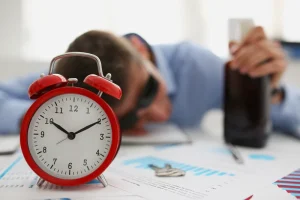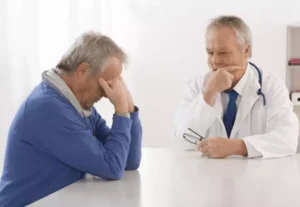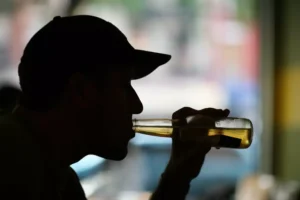Treatment of Substance Use Disorders Overdose Prevention

Addiction doesn’t happen from having a lack of willpower or as a result of making bad decisions. Treatment for what is drug addiction may involve psychotherapy, medication, hospitalization, support groups, or a combination. If left untreated drug addiction can lead to serious, life-altering effects on the body. Over time, addictions can seriously interfere with your daily life. People experiencing addiction are also prone to cycles of relapse and remission.

How can addiction harm other people?
Depending on the severity, a healthcare provider may offer medications to lessen the effects of withdrawal symptoms, as they can be rough physically and mentally. As with most other chronic diseases, such as diabetes, asthma, or heart disease, treatment for https://ecosoberhouse.com/ generally isn’t a cure. However, addiction is treatable and can be successfully managed. People who are recovering from an addiction will be at risk for relapse for years and possibly for their whole lives.
- This may exacerbate their mental disorder in the long run, as well as increase the risk of developing addiction.43,44 Treatment for all conditions should happen concurrently.
- Addiction can significantly impact your health, relationships and overall quality of life.
- Like many other chronic conditions, treatment is available for substance use disorders.
Inpatient Treatment
You can book an appointment with a primary care doctor in your area using our Healthline FindCare tool. Technology, sex, and work addictions are not recognized as addictions by the American Psychiatric Association in their most recent edition of the Diagnostic and Statistical Manual of Mental Disorders. In addition to getting appropriate treatment, there are things that you can do that will make it easier to cope and aid in your recovery. Substance use disorder affects people of all ages, races, sexes, genders and socioeconomic levels.
What is the most common addiction?
You can start by discussing your substance use with your primary care provider. Or ask for a referral to a specialist in drug addiction, such as a licensed alcohol and drug counselor, or a psychiatrist or psychologist. The drugs that may be addictive target your brain’s reward system.
Once a person has decided that they have a problem and need help, the next step is an examination by a healthcare professional. This involves questions about behaviors or substance use, an examination to assess overall health, and the development of a treatment plan that works best for the individual’s specific addiction. For a long time, addiction meant an uncontrollable habit of using alcohol or other drugs.

Center for Behavioral Health Statistics and Quality (CBHSQ)
She has worked in the hospital setting and collaborated on Alzheimer’s research. Maintaining sobriety after treatment for substance use is no small undertaking. It’s a lifelong journey involving continually learning how to apply new coping skills to everyday life.
You’ll need to detox again and restart your treatment cycle from the beginning. It helps to have a strong support system to rely on if you may be at risk of relapse. You might need different types of treatment at different times during your recovery.
Symptoms of a Substance Use Disorder
Traumatic experiences that affect coping abilities can also lead to addictive behaviors. Drug addiction, also called substance use disorder, is a disease that affects a person’s brain and behavior and leads to an inability to control the use of a legal or illegal drug or medicine. Substances such as alcohol, marijuana and nicotine also are considered drugs.
- Treatment for drug addiction may involve psychotherapy, medication, hospitalization, support groups, or a combination.
- For example, it is now well-known that tobacco smoke can cause many cancers, methamphetamine can cause severe dental problems, known as meth mouth, and that opioids can lead to overdose and death.
- You might need different types of treatment at different times during your recovery.
- Know that doctors and other medical professionals will NOT turn you into the police or “tell » on you. They’re only there to help, so do not hesitate to go to the hospital or take a loved one.
- These drugs can produce a « high » similar to marijuana and have become a popular but dangerous alternative.
- Provides scientific information about the disease of drug addiction, including the many harmful consequences of drug…
- In an opioid overdose, a medicine called naloxone can be given by emergency responders, or in some states, by anyone who witnesses an overdose.
- Despite the name, these are not bath products such as Epsom salts.
- The sooner you seek help, the greater your chances for a long-term recovery.
- Treatment approaches tailored to each patient’s drug use patterns and any co-occurring medical, mental, and social problems can lead to continued recovery.
Some people may be more prone to addiction because they feel less pleasure through natural routes, such as from work, friendships, and romance. Their genetic makeup inclines them to develop such personality traits as thrill-seeking. Their craving for risk and novelty takes the fear out of drug use and the huge dopamine boost powerfully reinforces the motivation to seek the reward over and over again. Prolonged stress during childhood dysregulates the normal stress response and, through overproduction of cortisol, is especially harmful to the brain’s hippocampus, impairing memory and learning. Severe or sustained early life adversity shifts the course of brain development and can lastingly impair emotion regulation and cognitive development.
Where can you get support for addiction?

Some people with disorders like anxiety or depression may use drugs in an attempt to alleviate psychiatric symptoms. This may exacerbate their mental disorder in the long run, as well as increase the risk of developing addiction.43,44 Treatment for all conditions should happen concurrently. A combination of medication and behavioral therapy has been found to have the highest success rates in preventing relapse and promoting recovery. Forming an individualized treatment plan with your healthcare provider’s help is likely to be the most effective approach. Substance abuse has many potential consequences, including overdose and death. Learn about the effects of drug addiction on the mind and body and treatment options that can help.
